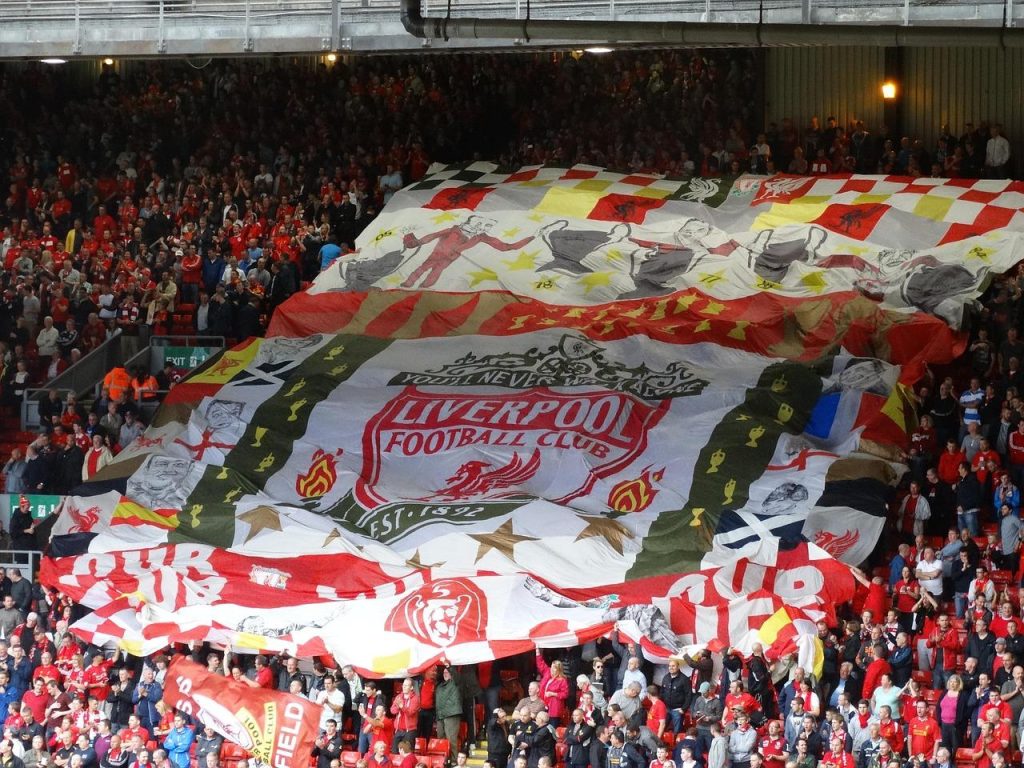In the ever-passionate world of football fandom, social media often serves as the digital battleground where rivalries and allegiances play out in vivid detail. Recently, an unexpected clash unfolded online between supporters of two of Europe’s most storied clubs-Real Madrid and Liverpool-centered around a seemingly innocuous Instagram post by Liverpool’s Trent Alexander-Arnold. What began as a simple update quickly ignited a wave of criticism from Liverpool fans, prompting a surprising and swift intervention from Real Madrid followers. This unusual alliance not only highlights the complexities of modern football fan culture but also underscores the growing trend of sports communities rallying across traditional divides in defense of respected players.
Real Madrid Supporters Stand Firm Amidst Social Media Backlash
In the latest volley of online football banter, Real Madrid supporters have emerged as staunch defenders of Trent Alexander-Arnold following an Instagram post that lit the fuse among Liverpool fans. The backlash was swift and fierce, with Reds loyalists lambasting the defender, interpreting the post as a provocation. Yet, Real Madrid fans quickly countered this narrative, emphasizing the spirit of sportsmanship and respect that transcends club rivalries. Their defense underscored several key points:
- Alexander-Arnold’s professionalism: Fans highlighted his consistent display of dedication and humility on and off the pitch.
- Misinterpretation of intent: Many argued the Instagram post was misread, encouraging a more measured response.
- Unity in football: Supporters called for a focus on football’s unifying power rather than divisive commentary.
The online exchange has evolved into a broader conversation about respect among football communities, with Real Madrid fans taking a commendable stance amid the heated exchanges. Their robust defense not only championed Alexander-Arnold but also served as a reminder that passion for the game should not foster hostility. By promoting dialogue grounded in mutual respect, they have set a tone that could inspire future interactions between rival fanbases.
Analyzing the Instagram Post That Sparked Controversy Among Liverpool Fans
The Instagram post that ignited the backlash among Liverpool supporters featured Trent Alexander-Arnold sharing a seemingly casual moment, which many fans interpreted as dismissive amid a period of disappointing results. While the content itself appeared benign – a snapshot of the defender enjoying downtime – the timing and subtle undertones sparked debates about his commitment and attitude. What caught the fanbase particularly off guard was the inclusion of a cryptic caption and carefully selected emojis that some perceived as indirect commentary on Liverpool’s recent form, fueling speculation and disappointment.
Interestingly, the fallout did not remain confined to Reds supporters. Real Madrid fans quickly rallied in defense of Alexander-Arnold, highlighting:
- His undeniable talent and influence on the pitch
- The intense scrutiny players face off the field
- The need for patience and understanding during challenging spells
This cross-fan solidarity shed light on the pressures elite players encounter beyond the game and underscored the importance of context before jumping to conclusions based on social media snapshots alone.
The Role of Fan Loyalty in Shaping Online Football Debates
Online football debates often transcend mere analysis of the game, morphing into passionate battlegrounds where fan loyalty plays a pivotal role in shaping discussions. When Real Madrid supporters mobilized to defend Trent Alexander-Arnold following criticism from Liverpool fans on Instagram, it wasn’t just about the player’s performance but a testament to how allegiances influence perspectives. This phenomenon reveals how fans don’t only support their teams but also engage in protective solidarity against perceived attacks, blurring the lines between objective commentary and emotional allegiance.
The intensity of these conversations is further amplified by social media’s immediacy, where reactions are swift and often polarized. Key dynamics observed include:
- Echo Chambers: Supporters cluster around like-minded voices, reinforcing their stance and intensifying tribalism.
- Identity Defense: Players become symbolic representatives of club pride, prompting defensive responses beyond rational debate.
- Emotional Investment: Fans’ deep emotional connections drive impassioned responses, often overshadowing factual analysis.
Understanding these elements is critical for navigating football discourse online, where fan loyalty can shape narratives as powerfully as the sport itself.
Effective Strategies for Navigating Rivalry-Driven Social Media Conflicts
When emotions run high, social media often becomes a battleground where rival fans clash, and heated exchanges spiral out of control. To manage these conflicts effectively, it’s crucial to adopt a strategic approach that emphasizes understanding and tact rather than confrontation. Begin by acknowledging the passion behind the rivalry; this validates the fans’ emotional investment while creating an opening for respectful dialogue. Avoid responding impulsively to inflammatory posts; instead, take a moment to assess the situation objectively. Use empathy to bridge the divide-recognizing the other side’s perspective can transform a potential flame war into a meaningful conversation.
Furthermore, deploying a few simple tactics can help de-escalate tensions and foster a more positive interaction environment:
- Focus on facts and positive achievements rather than personal attacks or insults.
- Use neutral, respectful language that discourages escalation and models good behavior.
- Encourage community support by rallying fans around shared values, such as sportsmanship and appreciation for talent.
- Set clear boundaries by reporting abusive content and maintaining a respectful comment section.
By applying these strategies, fans and moderators alike can turn rivalry-driven conflicts into opportunities for engagement that celebrate the sport and its diverse fanbase, rather than dividing them further.
As the digital age continues to shape the landscape of football fandom, moments like these highlight the complex interplay between club loyalty and respect for individual players. Real Madrid supporters rallying behind Trent Alexander-Arnold amid the backlash from Liverpool fans not only underscores the deep passion the sport inspires but also serves as a reminder of the power of solidarity beyond team rivalries. In a world where a single Instagram post can spark heated debate, it is encouraging to witness fans championing sportsmanship and mutual respect-qualities that truly elevate the beautiful game.


